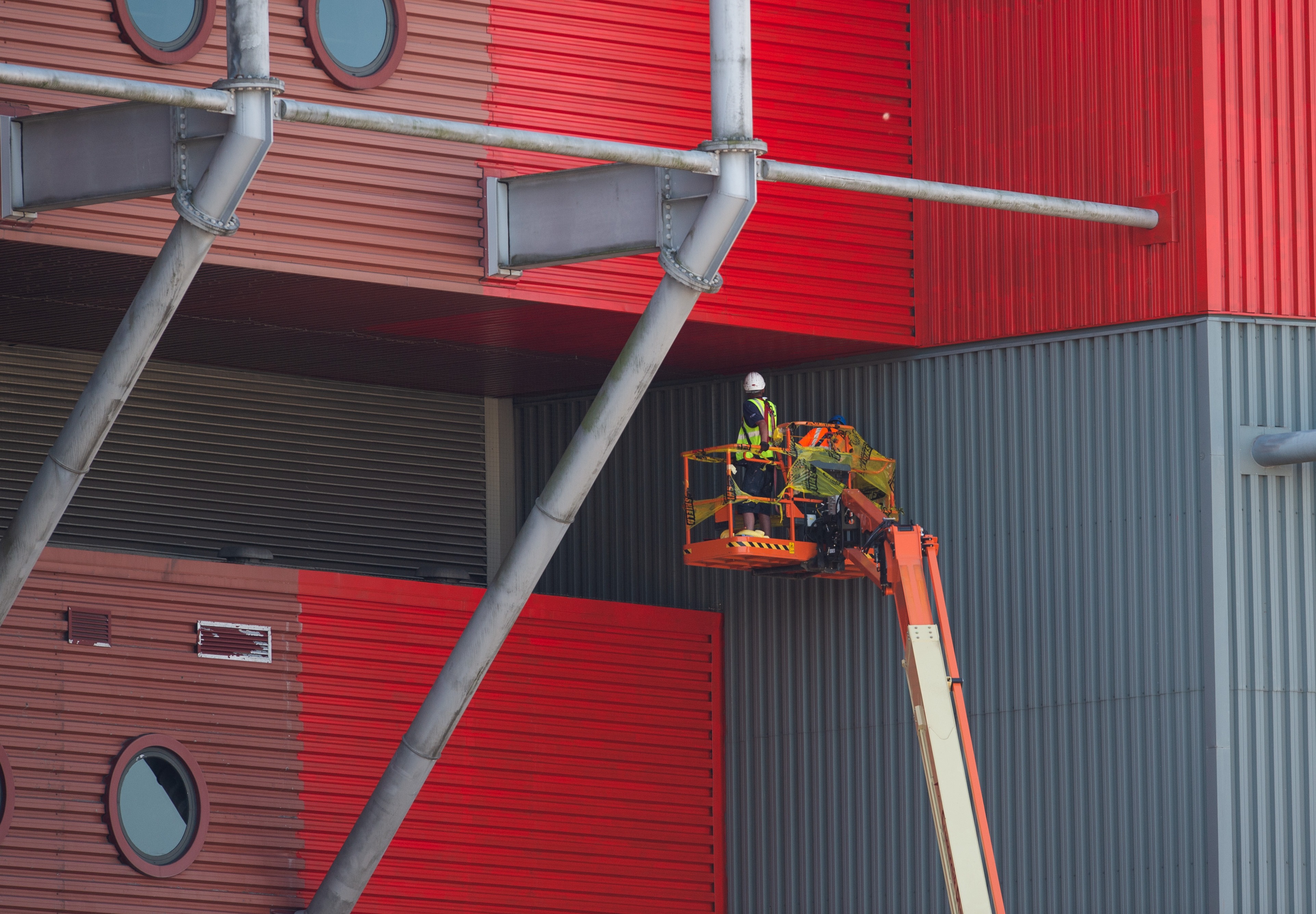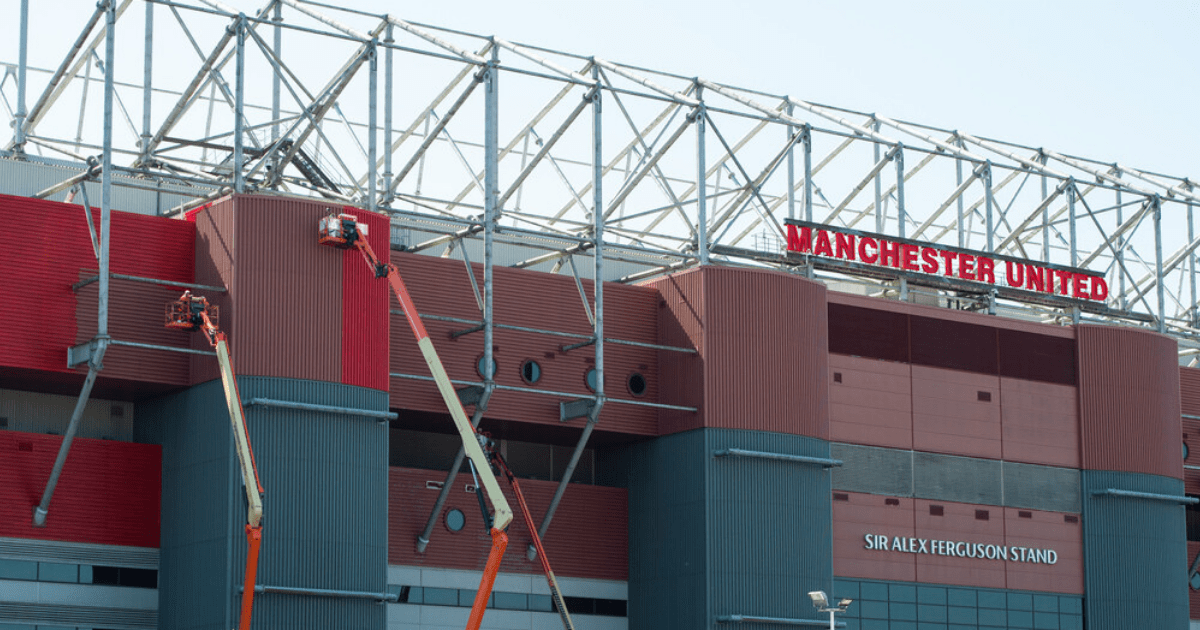Furious Fans and Employees
The Glazers, owners of Manchester United, have come under fire for a major blunder during the renovation of Old Trafford in 2022. It has been revealed that they committed a cardinal sin by using the wrong shade of red for a paint job, giving an accidental nod to arch-rivals Liverpool. This decision has left employees and fans alike furious.
A Darker Shade of Red
Legendary manager Sir Alex Ferguson was adamant that Manchester United should always play in a darker shade of red than Liverpool. He believed that using a bright shade would make it appear as if the club were wearing Liverpool shirts. To ensure this distinction, former kit supplier Nike even created a specific shade of red called "Diablo red" to meet Ferguson's specifications.
A Paint Job Gone Wrong
However, the Glazers overlooked Ferguson's cardinal rule when they repainted parts of Old Trafford. Employees quickly noticed that the color used was the very shade of red that Ferguson despised. An insider revealed that the paint was too bright and resembled Liverpool red, which was a huge disappointment for fans and employees who had hoped for a darker shade.
Leaky Roof Woes
This mishap with the paint job is not the only problem the Glazers have faced in relation to Old Trafford. Fans have repeatedly complained about the leaky roof at the stadium, which has become a symbol of the club's decline. Videos have gone viral showing water pouring through the roof, and fans have even reported getting wet while queuing for food during halftime.

Improvements on the Horizon
In light of these issues, billionaire Sir Jim Ratcliffe has made it a priority to improve Old Trafford. He has set aside a staggering £2 billion to create a "Wembley of the North." Fans hope that this ambitious project will address the paint job blunder and fix the leaky roof once and for all.
Frequently Asked Questions
What are some of the best ways to defend against a team with a high offensive level?
A disciplined, strategic approach is required to defend against an offensive team that is strong. Fundamental tactics include forming a strong defensive line, keeping a compact team and using a disciplined marking scheme. It is possible to limit scoring opportunities by forcing attackers towards the flanks rather than the centre. When possession is lost, it’s important that defenders communicate effectively and quickly switch to defense. Counter-attacking techniques can be used to exploit gaps that open up as offensive players commit themselves forward.
What are the skills required to be a great football player?
A footballer must combine technical, mental, physical, and tactical skills to be a great player. Technical skills include ball handling, dribbling and passing. Tactical skills include understanding the game in terms of positioning, movements, and decisions. For performance, physical attributes such as endurance, speed and strength are essential. Finaly, mental toughness and focus are crucial to maintaining performance through a match.
How can I stay motivated to improve my football skills?
Set clear, attainable goals and monitor your progress toward them to stay motivated. Regularly reviewing performance in training and match can help identify strengths and areas to improve. Finding a coach or community of players to work with can promote supportive relationships. This will encourage perseverance. Maintaining a positive attitude and visualizing the success you want to achieve can also be powerful motivational techniques. It is also important to include variety in the training routines in order to keep them interesting, as well as to allow for adequate rest and recovery.
How important are a footballer’s diet and nutrition to him?
Nutrition is an integral component of a football player’s performance and recovery. A healthy diet is important for energy and muscle repair. Dehydration will also affect your performance. Specific nutrition strategies and timing can change depending on your training schedule and matches. Consulting a sports dietician to develop customized dietary plans is often helpful.
How can one become an expert football goalkeeper?
Becoming an excellent goalkeeper requires special training that focuses on agility, positioning, and reflexes. A goalkeeper’s skills must include the ability to stop shots and control of the penalty zone through punching or catching. They also need to have a good distribution technique with both feet and hands. Goalkeeping requires the goalkeeper to have a high level of mental resilience and decision making under pressure. They must also communicate effectively with their defense. Consistent practice, constructive feedback from coaches, and analyzing performances to identify areas for improvement are essential in mastering the art of goalkeeping.
Statistics
- A consistent mental focus regimen, including visualization techniques, can enhance player concentration levels by up to 20% during matches.
- Players with a balanced diet containing adequate macronutrients have a 30% lower injury rate than those with less balanced nutritional habits.
- Players who train for more than 10 hours a week show a 20% improvement in technique compared to those who train for less time.
- Youth players who participate in football education programs have a 35% higher chance of being scouted by professional clubs.
- Teams that prioritize teamwork in training sessions increase their passing accuracy by an average of 15% in competitive matches.
External Links
ussoccer.com
uefa.com
ffacoach.com
bbc.co.uk
nscaa.com
How To
How To Lead a Football team as an Effective Captain
In order to lead a team of footballers effectively, you must embody the qualities that make a good leader: communication, integrity and decisiveness. Never be afraid to lead by your example. This applies both in terms of training efforts and performance during matches. Foster team unity by building relationships with teammates, understanding their strengths and motivations. Foster a dialogue that is constructive and enables a clear connection between the coach and team. Learn how to resolve conflicts diplomatically and create an environment where teamwork, collective success and individual recognition are valued over each other.

